Geological Events of the Neogene Period
During the Neogene period, the Earth's climate underwent significant changes, transitioning from a warm, greenhouse climate to a cooler, more variable climate. This period also saw the formation of the Himalayan mountain range due to the collision of the Indian and Eurasian tectonic plates, as well as the continued movement of the Earth's continents.Biological Evolution in the Neogene
The Neogene period is marked by the emergence and diversification of many modern plant and animal species. Mammals, in particular, underwent significant diversification and evolution, leading to the development of many familiar mammalian groups, such as primates, elephants, and big cats. The first hominids, early human ancestors, also appeared during this time.Study Guide for the Neogene Period
To study the Neogene period, consider focusing on the following key points:- Geological events and climate changes during the Neogene.
- The impact of tectonic activity on the Earth's surface during this period.
- The evolutionary developments and diversification of mammals and other key species.
- The emergence of early hominids and their significance in human evolution.
- The relationship between environmental changes and the evolution of plant and animal life during the Neogene.
◂Science Worksheets and Study Guides Fifth Grade. Energy and ecosystems
Study Guide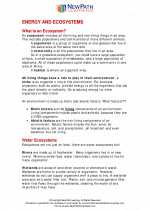 Energy and ecosystems
Energy and ecosystems  Worksheet/Answer key
Worksheet/Answer key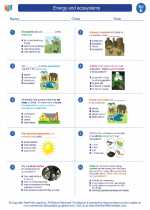 Energy and ecosystems
Energy and ecosystems  Worksheet/Answer key
Worksheet/Answer key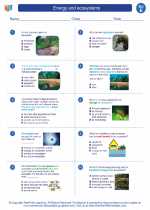 Energy and ecosystems
Energy and ecosystems  Worksheet/Answer key
Worksheet/Answer key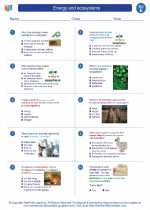 Energy and ecosystems
Energy and ecosystems  Vocabulary/Answer key
Vocabulary/Answer key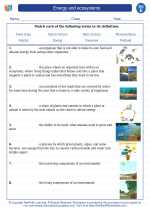 Energy and ecosystems
Energy and ecosystems  Vocabulary/Answer key
Vocabulary/Answer key Energy and ecosystems
Energy and ecosystems  Vocabulary/Answer key
Vocabulary/Answer key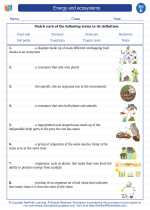 Energy and ecosystems
Energy and ecosystems 

 Worksheet/Answer key
Worksheet/Answer key
 Worksheet/Answer key
Worksheet/Answer key
 Worksheet/Answer key
Worksheet/Answer key
 Vocabulary/Answer key
Vocabulary/Answer key
 Vocabulary/Answer key
Vocabulary/Answer key
 Vocabulary/Answer key
Vocabulary/Answer key

The resources above cover the following skills:
PHYSICAL SCIENCE (NGSS)
Energy
Students who demonstrate understanding can:
Use models to describe that energy in animals’ food (used for body repair, growth, motion, and to maintain body warmth) was once energy from the sun.